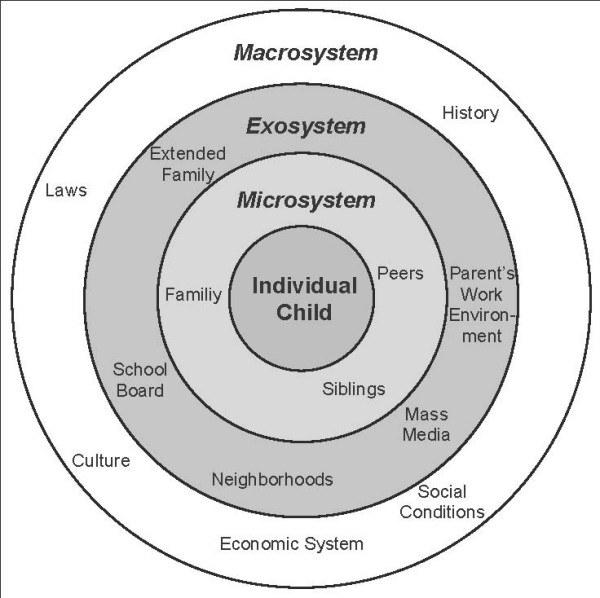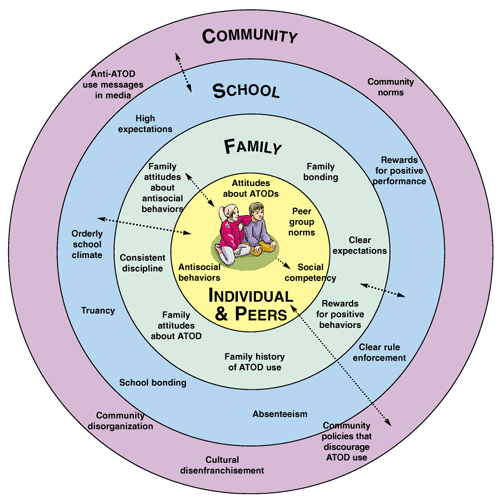Lesson 5: The Theory behind Case Management
Attention

Learning Outcomes
Upon completion of this lesson's material, students will be able to:
- Explain the importance of community inclusion and natural supports
- Demonstrate knowledge about changing treatment needs for adult stages of transition
Teaching
Read Chapter 3
The Ecological Model approach to Case Management calls for us to look at the client as a whole and in context in a social world. We can describe the context of the client in three levels Macro, Meso and Micro. When we look at the Macro level we examine society's characteristics and how they come to bear on the individual. The Meso level is more personal. This is the context immediately surrounding the client. The client's community, family, friends, church and co-workers are included in this layer. The Micro level focuses specifically on the client. It looks at the client's personality, motivations and personal characteristics.
The ecological model arises from the work of Brofenbrenner, a Psychologist. The graphic below exemplifies the relationships that exist among the different levels of interaction in a person's world. First there is a general model and then how it may be applied to a school situation

This model is actually a developmental model of human development. As peresons age and experience the world, the different concentric circles of influence begin to have an impact on the development of the person.
When we work with people we often can implement change in a persons well-being by implementing change in one of the outer rings.
So, we combine theories of human development (such as Erikson) with this theory to help us understand where someone is at.
Assessment
Lesson 5 Quiz
- This week's reading looks at Macro, Exo, Meso and Micro levels of context. As Case Managers we provide services across each of the levels in which a person operates. Provide an example of a Case Management service that you would provide or refer to in each of the levels.